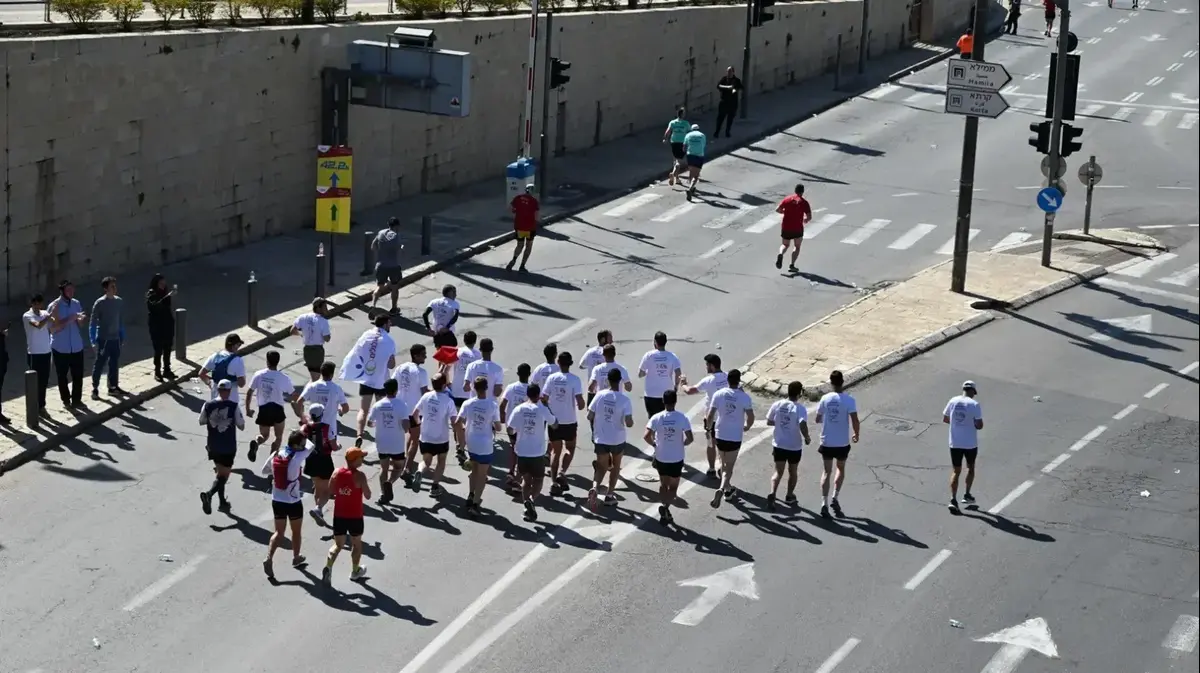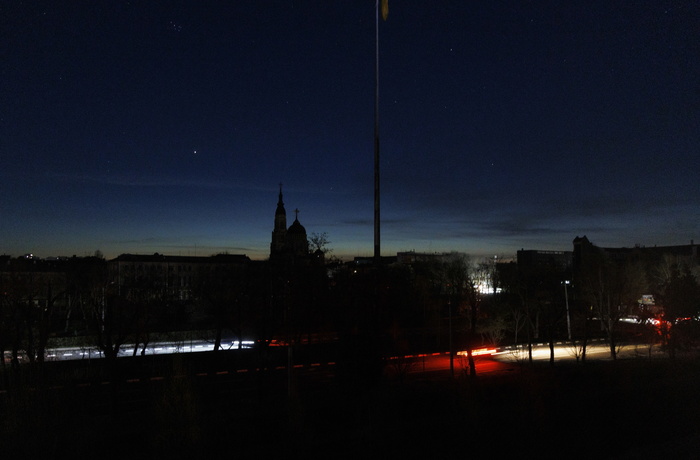Summit marathon marked by war
Created: 06/22/2022, 05:40
Chancellor Olaf Scholz has a summit marathon ahead of him.
© Michael Kappeler/dpa
Three big summits with one big topic: the Ukraine war and its consequences.
From Thursday, the EU, G7 and NATO will set the course for their future.
Chancellor Scholz is there all the way.
Berlin/Brussels - It is a summit marathon that has seldom been experienced.
It starts next Thursday in Brussels with the heads of state and government of the European Union, is then continued in the Bavarian Alps by the G7 group of economically strong democracies and ends eight days later in the Spanish capital Madrid, where NATO is realigning itself want.
Almost 50 countries from all continents are involved.
But only three bosses will walk the full route from start to finish: German Chancellor Olaf Scholz, French President Emmanuel Macron and Italian Prime Minister Mario Draghi.
Only their countries belong to both the EU and NATO as well as the G7.
Exactly these three top politicians traveled to Kyiv in a special train last week to meet the Ukrainian President Volodymyr Zelenskyy in preparation for the summit marathon.
He too now wants to be present at all three summits, but only via video link.
This already shows which topic at the summits will outshine everything else: The Ukraine war and its global consequences will run like a red thread through all three summits.
EU summit in Brussels
If Russia's President Vladimir Putin hadn't ordered his armed forces to invade neighboring Ukraine on February 24, climate protection would probably have been the absolute top issue at the EU summit this Thursday and Friday.
Originally, it had been planned to set the necessary course for achieving the European reduction targets for greenhouse gases at the meeting.
In view of the Ukraine war and its consequences, however, the topic is now only being addressed marginally.
According to diplomats, there is too much concern about falling out over the difficult issue of climate protection - especially since the Ukraine war has caused energy costs to rise again and many governments do not want to burden their citizens with large additional costs for climate protection.
Instead, leaders will now discuss further support for Russia-attacked Ukraine.
At the meeting, the EU Commission proposed officially recognizing Ukraine and its small neighboring country Moldova as EU accession candidates.
In addition, according to a draft for the summit conclusions, military support for Ukraine is to be further expanded.
also read
Russia's conflict with EU country Lithuania comes to a head: Putin confidante threatens "severe consequences"
Suddenly Putin's propaganda boss no longer speaks of "special operations" - she calls a different war theory
It is very likely that the proposals will find the necessary approval from all heads of state and government.
Scholz, Macron and Draghi had already clearly positioned themselves in Kyiv.
Until recently, however, it was still unclear whether other EU states such as Austria would tie their approval of the EU candidate status for Ukraine and Moldova to progress in EU expansion to the Western Balkans.
The heads of state and government want to meet with their colleagues from the Balkan states on Thursday morning before the EU summit.
For example, Austria is calling for Bosnia-Herzegovina to be granted the status of an EU accession candidate.
G7 summit in Elmau
Six months after being sworn in as chancellor, Scholz is hosting a major international summit for the first time.
In Elmau, too, climate protection should actually be the top issue.
Here, too, the Ukraine war will be in the foreground.
It is said to be about the sanctions against Russia and long-term aid for Ukraine, which is marked by considerable destruction after four months of war.
"It is clear, and we will assure you again there as the G7, that we will support Ukraine for as long as it is necessary," says Scholz.
To reduce global warming, Scholz wants to promote his idea of the climate club, which dates back to his time as finance minister.
"The states that are jointly on the way to more climate protection should be able to work together in the way we envisage for the whole world," he says, describing the project itself.
One of the Chancellor's particular concerns is to strengthen the cohesion of democracies worldwide.
That is why Scholz invited India, Indonesia, South Africa, Senegal and Argentina as guest countries to Elmau.
"Our understanding of democracy falls short if we only focus on the classic West," he says.
The powerful democracies of the future can be found in Asia, Africa and the south of America, and one must network better with them.
"It would be a special success if the summit could be the starting point for a new look at the world of democracy," says Scholz.
NATO summit in Madrid
The summit marathon will conclude with the meeting of the heads of state and government of the 30 NATO countries in Madrid.
It was still unclear whether the meeting that began on Tuesday would really deliver the hoped-for message of unity.
The reason for this is Turkey's previous refusal to agree to the start of NATO accession talks with Finland and Sweden.
The two countries had already applied to join the defense alliance in mid-May and hoped to be able to attend the Madrid summit as invited states.
So far, however, Turkey has blocked the admission process and justifies its position with the fact that Finland and Sweden support "terrorist organizations" such as the banned Kurdish Workers' Party PKK and the Syrian Kurdish militia YPG - which both countries reject.
Until recently, it was still unclear whether France would be willing to agree to the planned increase in joint NATO spending.
So far, the country has argued that it would be more effective if each country increased its national defense spending sensibly.
In the meantime, it is considered certain that the NATO states will agree on a long-term strengthening of the eastern flank in view of the Russian action against Ukraine.
In addition, a new strategic concept is to be decided.
The current version dates from 2010. At that time, for example, the Allies were still hoping that the time of great tension with Russia was over and were counting on a “real strategic partnership” with the country.
dpa








